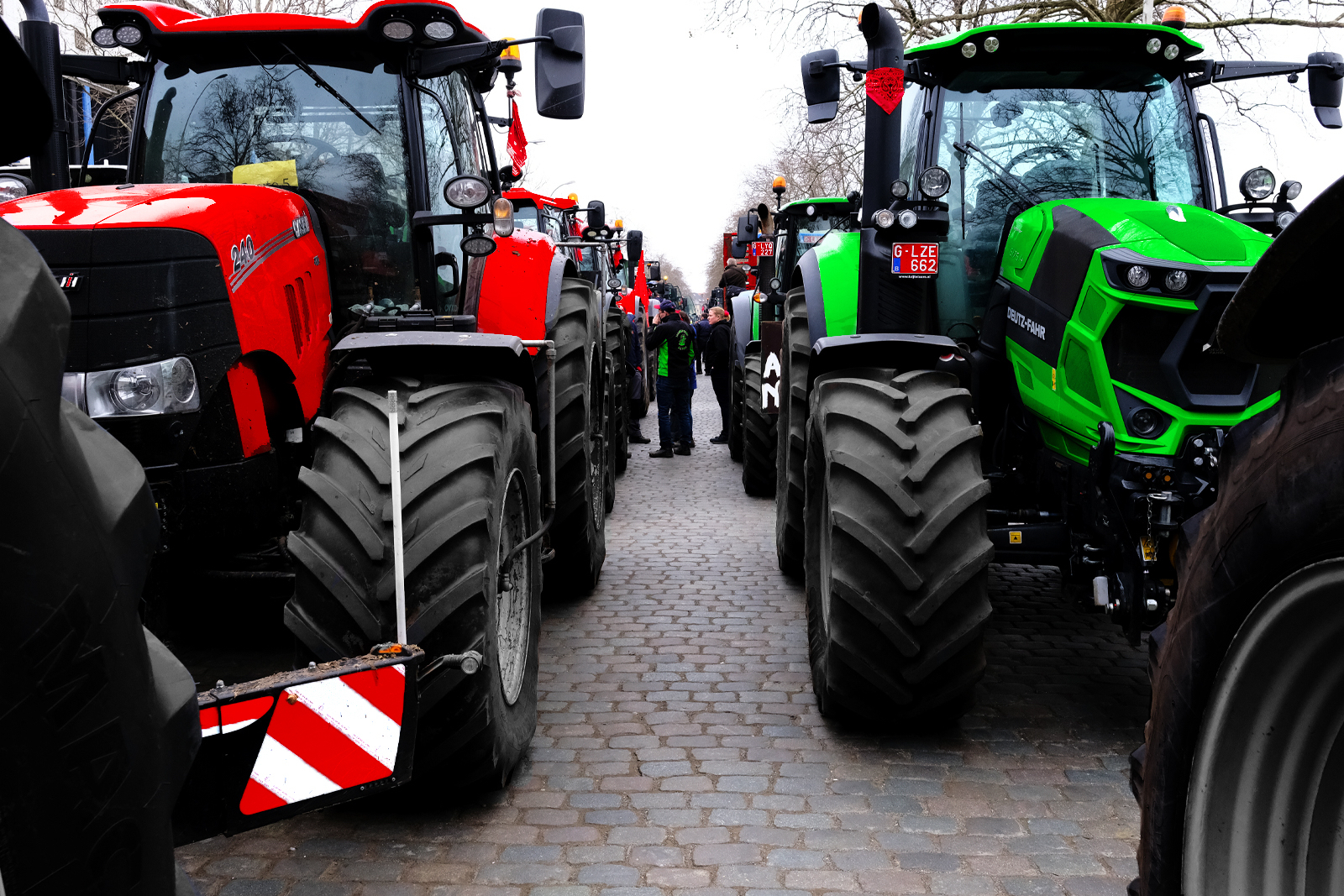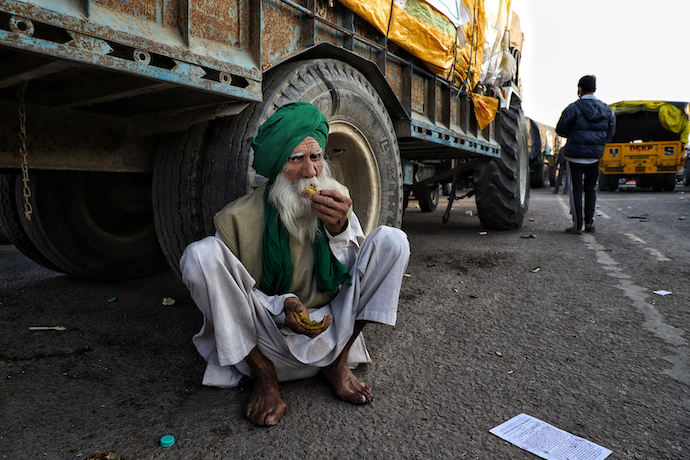
Farmers are Fed Up and Taking to the Street
From fields to city streets, farmers around the world have launched protests in recent weeks, demanding relief from what they say is a crisis driven by climate change policies, bureaucratic red tape, and crop prices. The start of this year has seen farmer protests in Italy, France, Belgium, Greece, and many other countries in the European Union.
In Rome, for instance, hundreds of farmers held demonstrations on Thursday, parking tractors outside the Colosseum and gathering in the Circus Massimo. Italian farmers, echoing concerns across the EU, are protesting against the impact of lower-standard, cheaper imports, and the pricing practices of supermarket chains, which have driven down prices amidst rising costs like diesel. Their specific demands to the Italian government include cuts to VAT on food products and wine, and dialogues with Italian leaders, including Prime Minister Giorgia Meloni.
In response, the Italian government has introduced targeted tax breaks for two years and offered to hold technical discussions with farmers’ groups. The government, led by Giorgia Meloni’s far-right party since late 2022, has shown support for farmers, including passing laws against the sale of laboratory-grown meat, actions that have been welcomed by farmer groups.
On Tuesday, agricultural protests significantly disrupted traffic by blocking access to the Port of Antwerp in Belgium, Europe’s second-largest port. The protests led to significant transport delays and the spoilage of goods, incurring costs of tens of millions of euros.
The discontent among farmers, a sentiment with deep roots particularly in France, has now gained a global dimension. This unrest is notable not just for its geographical spread but also for its timing, coinciding with a year marked by significant political risk due to elections in the European Union, India, the United States, and many other countries.

Globally, the agricultural sector has emerged as a central arena of conflict. Governments are attempting to manage farmer grievances, while figures ranging from former U.S. President Donald Trump to far-right factions in Europe seek to mobilize this anger for their own ends. This struggle forms part of a broader cultural conflict, largely focused on how farmers specifically are navigating the economic and social shifts created by the response to climate change.
The long line of tractors converging on Paris on January 26 was just one recent show of discontent. Dozens of tractors jammed streets in Brussels near EU institutions as farmers directed their anger at the bloc’s leaders meeting nearby for a summit.
Protests also took place in Spain, Switzerland, and Romania. Farmers in Poland have been at the forefront of opposition to grain arriving from neighboring Ukraine, forcing the government to negotiate a better deal. In Germany,
farmers blocked highways last month for a week to fight against cuts to diesel subsidies. Thousands of people gathered on the road leading up to Berlin’s Brandenburg Gate.
In the U.S., farmers complain they are being priced out by large agro companies.
In India, which relies on hundreds of millions of smallholder farmers to feed itself, Prime Minister Narendra Modi has sought to appease farmers with cash and subsidies, yet the capital was locked down due to demonstrations and a nationwide strike by farmers, trade unions, women’s organizations, and students.
Taken together, farmers represent a significant challenge to governments that must navigate the tricky, but seemingly inevitable transition to healthy, sustainable food production and diets.
European Commission President Ursula von der Leyen has been meeting with farmers and other stakeholders to try and stave off discontent. In France, Europe’s top producer, President Emmanuel Macron’s government is pledging more money for farmers and pushing back against the EU’s trade talks with Latin American countries.
European Union officials emphasize the importance of stringent regulation, reflecting on a period marked by weak enforcement that led to extensive soil pollution. This issue was particularly evident in the practice of dumping excess manure into gutters and rivers.
To address such environmental concerns, farms underwent rigorous inspections to ensure that agricultural subsidies were being utilized properly. The aim was to mitigate pollution and promote sustainable farming practices.
However, the regulatory landscape has significantly evolved since then. Over the years, the accumulation of complex and detailed regulations has infuriated farmers and has now prompted policymakers to reconsider any future regulations.
What has happened now is that there’s a growing awareness that the regulatory approach may have become overly restrictive, suggesting that the balance between ensuring environmental protection and supporting the agricultural sector needs reassessment.
What farmers are hoping is that this newfound awareness will result in a more balanced and pragmatic government approach to regulation that still addresses environmental concerns without unduly burdening farmers.

